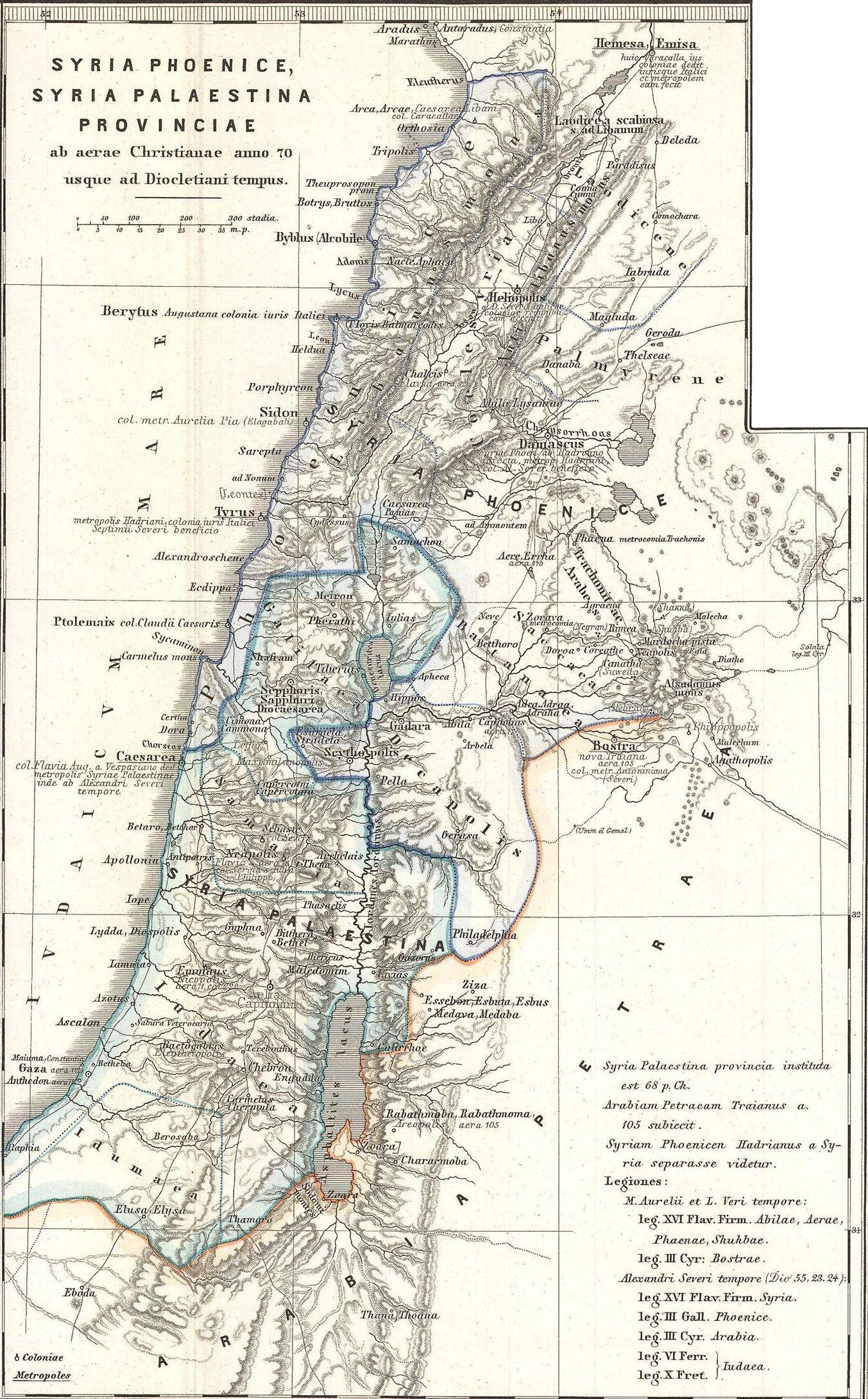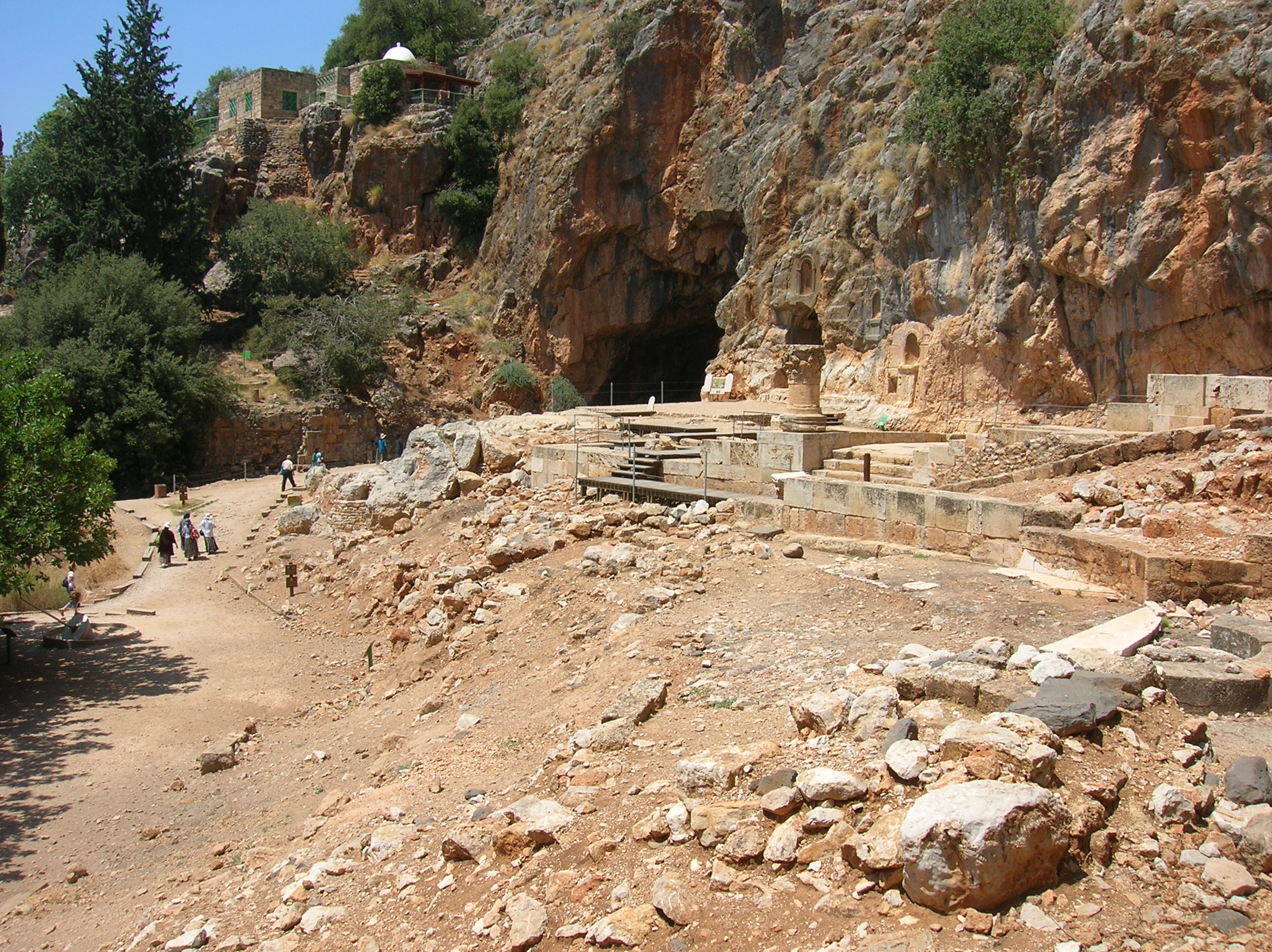|
Ptolemaic Acra
The Ptolemaic Baris (also Ptolemaic Acra) was a citadel maintained by Ptolemaic Egypt during its rule of Jerusalem in the 3rd century BC. Described by only a few ancient sources, no archaeological remains of the citadel have been found and much about it remains a matter of conjecture. Possible Persian origins After the conquest of Babylon by the Persian Empire, Cyrus the Great allowed the Jews to return to their native land and rebuild Jerusalem, sacked by Nebuchadnezzar II in 586 BC. While rebuilding the city's fortifications, the Persian administration also constructed a new citadel north of the Temple Mount enclosure, as part of a general Persian effort to bolster the empire's defences. This citadel is the ''Birah'' (Hebrew: בירה) referred to in , appearing as the ''Baris'' in Greek translations of the Septuagint. The origin of the word is not entirely clear, but may have been borrowed into Hebrew from Assyrian ''birtu'' or ''bistu'' meaning a citadel or castle within a cit ... [...More Info...] [...Related Items...] OR: [Wikipedia] [Google] [Baidu] |
Coele-Syria
Coele-Syria (, also spelt Coele Syria, Coelesyria, Celesyria) alternatively Coelo-Syria or Coelosyria (; grc-gre, Κοίλη Συρία, ''Koílē Syría'', 'Hollow Syria'; lat, Cœlē Syria or ), was a region of Syria (region), Syria in classical antiquity. It probably derived from the Aramaic word for all of the Syria (region), region of Syria, but it was most often applied to the Beqaa Valley between the Mount Lebanon, Lebanon and the Anti-Lebanon Mountains, Anti-Lebanon mountain ranges. The area is now part of the modern-day Syria and Lebanon. Name It is widely accepted that the term Coele is a transcription of Aramaic ''kul'', meaning "all, the entire", such that the term originally identified ''all'' of Syria.A History of the ... [...More Info...] [...Related Items...] OR: [Wikipedia] [Google] [Baidu] |
Letter Of Aristeas
The Letter of Aristeas to Philocrates is a Hellenistic work of the 3rd or early 2nd century BC, considered by some Biblical scholars to be pseudepigraphical. Harris, Stephen L., ''Understanding the Bible''. (Palo Alto: Mayfield) 1985; André Pelletier, SJ, ''La Lettre d'Aristée à Philocrate'' (Paris) 1962. The letter is the earliest text to mention the Library of Alexandria. Josephus,''Antiquities'' XII:ii passimOnlinein Greek and English at York University) who paraphrases about two-fifths of the letter, ascribes it to Aristeas of Marmora and to have been written to a certain Philocrates. The letter describes the Greek translation of the Hebrew Bible by seventy-two interpreters sent into Egypt from Jerusalem at the request of the librarian of Alexandria, resulting in the Septuagint translation. Some scholars have since argued that it is fictitious. History The Letter of Aristeas, called so because it was a letter addressed from Aristeas of Marmora to his brother Philocrat ... [...More Info...] [...Related Items...] OR: [Wikipedia] [Google] [Baidu] |
Jewish Antiquities
''Antiquities of the Jews'' ( la, Antiquitates Iudaicae; el, Ἰουδαϊκὴ ἀρχαιολογία, ''Ioudaikē archaiologia'') is a 20-volume historiographical work, written in Greek, by historian Flavius Josephus in the 13th year of the reign of Roman emperor Flavius Domitian which was around AD 93 or 94.Freedman, David Noel, ed., ''The Anchor Bible Dictionary'', (New York: Doubleday, 1997, 1992). ''Antiquities of the Jews'' contains an account of the history of the Jewish people for Josephus' gentile patrons. In the first ten volumes, Josephus follows the events of the Hebrew Bible beginning with the creation of Adam and Eve. The second ten volumes continues the history of the Jewish people beyond the biblical text and up to the Jewish War, or the First Jewish–Roman War, 66 to 73 CE. This work, along with Josephus's other major work, ''The Jewish War'' (''De Bello Iudaico''), provides valuable background material for historians wishing to understand 1st-century AD Jud ... [...More Info...] [...Related Items...] OR: [Wikipedia] [Google] [Baidu] |
Seleucid Army
The Seleucid army was the army of the Seleucid Empire, one of the numerous Hellenistic states that emerged after the death of Alexander the Great. As with the other major Hellenistic armies, the Seleucid army fought primarily in the Greco-Macedonian style, with its main body being the phalanx. The phalanx was a large, dense formation of men armed with small shields and a long pike called the ''sarissa''. This form of fighting had been developed by the Macedonian army in the reign of Philip II of Macedon and his son Alexander the Great. Alongside the phalanx, the Seleucid armies used a great deal of native and mercenary troops to supplement their Greek forces, which were limited due to the distance from the Seleucid rulers' Macedonian homeland. Manpower The distance from Greece put a strain on the Seleucid military system, as it was primarily based around the recruitment of Greeks as the key segment of the army. In order to increase the population of Greeks in their kingdom, the ... [...More Info...] [...Related Items...] OR: [Wikipedia] [Google] [Baidu] |
Josephus
Flavius Josephus (; grc-gre, Ἰώσηπος, ; 37 – 100) was a first-century Romano-Jewish historian and military leader, best known for ''The Jewish War'', who was born in Jerusalem—then part of Roman Judea—to a father of priestly descent and a mother who claimed royal ancestry. He initially fought against the Romans during the First Jewish–Roman War as head of Jewish forces in Galilee, until surrendering in 67 AD to Roman forces led by Vespasian after the six-week siege of Yodfat. Josephus claimed the Jewish Messianic prophecies that initiated the First Jewish–Roman War made reference to Vespasian becoming Emperor of Rome. In response, Vespasian decided to keep Josephus as a slave and presumably interpreter. After Vespasian became Emperor in 69 AD, he granted Josephus his freedom, at which time Josephus assumed the emperor's family name of Flavius.Simon Claude Mimouni, ''Le Judaïsme ancien du VIe siècle avant notre ère au IIIe siècle de notre ère : Des ... [...More Info...] [...Related Items...] OR: [Wikipedia] [Google] [Baidu] |
Judea
Judea or Judaea ( or ; from he, יהודה, Hebrew language#Modern Hebrew, Standard ''Yəhūda'', Tiberian vocalization, Tiberian ''Yehūḏā''; el, Ἰουδαία, ; la, Iūdaea) is an ancient, historic, Biblical Hebrew, contemporaneous Latin, and the modern-day name of the mountainous southern part of the modern States of State of Palestine, Palestine and Israel. The name originates from the Hebrew name Judah (son of Jacob), Yehudah, a son of the biblical Patriarchs (Bible), patriarch Jacob, Jacob/Israel, with Yehudah's progeny forming the biblical Israelite tribe of Judah (Yehudah) and later the associated Kingdom of Judah. Related nomenclature continued to be used by the Babylonians, Achaemenid Empire, Persian, Hellenistic period, Hellenistic, and Roman Empire, Roman periods as the Yehud (Babylonian province), Babylonian and Yehud (Persian province), Persian Yehud, Hasmonean Kingdom, Hasmonean Kingdom of Judea, and consequently Herodian Kingdom, Herodian and Judea (Rom ... [...More Info...] [...Related Items...] OR: [Wikipedia] [Google] [Baidu] |
Battle Of Panium
The Battle of Panium (also known as Paneion, grc, Πάνειον, or Paneas, Πανειάς) was fought in 200 BC near Paneas (Caesarea Philippi) between Seleucid and Ptolemaic forces as part of the Fifth Syrian War. The Seleucids were led by Antiochus III the Great, while the Ptolemaic army was led by Scopas of Aetolia. The Seleucids achieved a complete victory, annihilating the Ptolemaic army and conquering the province of Coele-Syria. The Ptolemaic Kingdom never recovered from its defeat at Panium and ceased to be an independent great power. Antiochus secured his southern flank and began to concentrate on the looming conflict with the Roman Republic. Background In 202 BC, Ptolemy son of Thraseas, the Ptolemaic governor of Coele-Syria, defected to the side of Antiochus III the Great, the ruler of the Seleucid Empire. Antiochus invaded and occupied most of the province, including the city of Gaza, by the autumn of 201 BC, when he returned to winter quarters in Syria. The Pt ... [...More Info...] [...Related Items...] OR: [Wikipedia] [Google] [Baidu] |
Antiochus III
Antiochus III the Great (; grc-gre, Ἀντίoχoς Μέγας ; c. 2413 July 187 BC) was a Greek Hellenistic king and the 6th ruler of the Seleucid Empire, reigning from 222 to 187 BC. He ruled over the region of Syria and large parts of the rest of western Asia towards the end of the 3rd century BC. Rising to the throne at the age of eighteen in 222 BC, his early campaigns against the Ptolemaic Kingdom were unsuccessful, but in the following years Antiochus gained several military victories and substantially expanded the empire's territory. His traditional designation, ''the Great'', reflects an epithet he assumed. He also assumed the title ''Basileus Megas'' (Greek for "Great King"), the traditional title of the Persian kings. A militarily active ruler, Antiochus restored much of the territory of the Seleucid Empire, before suffering a serious setback, towards the end of his reign, in his war against Rome. Declaring himself the "champion of Greek freedom against Roman dominat ... [...More Info...] [...Related Items...] OR: [Wikipedia] [Google] [Baidu] |
Syrian Wars
The Syrian Wars were a series of six wars between the Seleucid Empire and the Ptolemaic Kingdom of Egypt, successor states to Alexander the Great's empire, during the 3rd and 2nd centuries BC over the region then called Coele-Syria, one of the few avenues into Egypt. These conflicts drained the material and manpower of both parties and led to their eventual destruction and conquest by Rome and Parthia. They are briefly mentioned in the biblical Books of the Maccabees. Background In the Wars of the Diadochi following Alexander's death, Coele-Syria initially came under the rule of Antigonus I Monophthalmus. In 301 BC Ptolemy I Soter, who four years earlier had crowned himself King of Egypt, exploited events surrounding the Battle of Ipsus to take control of the region. The victors at Ipsus, however, had allocated Coele-Syria to Ptolemy's former ally Seleucus I Nicator, founder of the Seleucid Empire. Seleucus, who had been aided by Ptolemy during his ascent to power, did not t ... [...More Info...] [...Related Items...] OR: [Wikipedia] [Google] [Baidu] |
Seleucid Empire
The Seleucid Empire (; grc, Βασιλεία τῶν Σελευκιδῶν, ''Basileía tōn Seleukidōn'') was a Greek state in West Asia that existed during the Hellenistic period from 312 BC to 63 BC. The Seleucid Empire was founded by the Macedonian general Seleucus I Nicator, following the division of the Macedonian Empire originally founded by Alexander the Great. After receiving the Mesopotamian region of Babylonia in 321 BC, Seleucus I began expanding his dominions to include the Near Eastern territories that encompass modern-day Iraq, Iran, Afghanistan, Syria, all of which had been under Macedonian control after the fall of the former Persian Achaemenid Empire. At the Seleucid Empire's height, it had consisted of territory that had covered Anatolia, Persia, the Levant, and what are now modern Iraq, Kuwait, Afghanistan, and parts of Turkmenistan. The Seleucid Empire was a major center of Hellenistic culture. Greek customs and language were privileged; the wide varie ... [...More Info...] [...Related Items...] OR: [Wikipedia] [Google] [Baidu] |
Seleucus I Nicator
Seleucus I Nicator (; ; grc-gre, Σέλευκος Νικάτωρ , ) was a Macedonian Greek general who was an officer and successor ( ''diadochus'') of Alexander the Great. Seleucus was the founder of the eponymous Seleucid Empire. In the power struggles that followed Alexander's death, Seleucus rose from being a secondary player to becoming total ruler of Asia Minor, Syria, Mesopotamia, and the Iranian Plateau, eventually assuming the title of '' basileus'' (king). The state he established on these territories, the Seleucid Empire, was one of the major powers of the Hellenistic world, until being overcome by the Roman Republic and Parthian Empire in the late second and early first centuries BC. After the death of Alexander in June 323 BC, Seleucus initially supported Perdiccas, the regent of Alexander's empire, and was appointed Commander of the Companions and chiliarch at the Partition of Babylon in 323 BC. However, after the outbreak of the Wars of the Diadochi in ... [...More Info...] [...Related Items...] OR: [Wikipedia] [Google] [Baidu] |

.jpg)







